Beyond Fit FAQ
I’m new to Pilates. Anything I should know?
How is pilates different from other forms of exercise?
What are some of the benefits of Pilates?
What If I’m not flexible?
Is Pilates safe for me?
What if I’m pregnant?
Why stretch with Pilates when I can stretch on my own?
What should I wear to class? What should I bring?
How often should I practice?
Will I get attention?
What kind of equipment?
What is your cancellation policy?
I’m new to Pilates. Anything I should know?
Pilates is a progressive exercise method that strengthens while lengthening muscles. The beginner and intermediate work are gentle yet extremely effective. The advanced work is challenging and requires a great degree of shoulder and core strength, balance, flexibility, and experience. Pilates is a great complement to your already existing fitness routine or it can BE your fitness routine. Just remember, as with any fitness regimen, fitness and progression come with practice and consistency. You should be training your body at least 3-4 times a week with a combination of resistance and cardio work.
How is pilates different from other forms of exercise?
Pilates is intelligent exercise with profound results. It is mind and body conditioning with a repertoire of more than 500 systematic exercises that work the body gently but effectively. Pilates addresses the needs of everyone spanning from post-rehabilitation to the elite athlete. Pilates emphasizes concentration, control, centering, breathing, flow, and precision. Moving slowly, the focus is on quality, not quantity. The abdominal muscles, lower back, and buttocks serve as the center of all movement, allowing the rest of the body to move freely. This focus on core stabilization creates a stronger body from the inside out. The balance between strength and flexibility creates a healthy, vigorous, and symmetrical workout for all muscle groups resulting in a leaner, more balanced, and stronger body.
What are some of the benefits of Pilates?
No other method of exercise can do what Pilates can do for a body. Besides the flattened, toned abs that you will have no option but to develop, your entire body will lengthen, become more flexible, and get stronger. You will improve your balance, as balance is naturally built into so many of the exercises. Pilates helps to prevent injury and will rehabilitate you if you’ve sustained one. You will breathe deeply, increase your circulation, and reduce your stress. You will experience relief with back pain, become more body aware, and find that you are able to concentrate so much better throughout your day!
What If I’m not flexible?
It’s ok! You are not expected to be flexible when you first start Pilates. Since Pilates is a progressive practice, you will start with exercises that are more gentle and will slowly work on lengthening your muscles, eventually performing the movement with the ideal form.
Is Pilates safe for me?
Pilates is an incredibly safe, non-impact exercise. Your first session will include a consultation discovering history, current physical conditions, and goals along with functional and postural assessments in order to appropriately program your sessions. While performing the movements, your form, spring resistance, and range of motion, might be modified to keep you injury-free and moving forward in the work. It should be noted, however, that if you are under a doctor’s care for any recent injury or surgery, you should consult with your healthcare professional before you begin.
What if I’m pregnant?
With your doctor’s blessing, you can start and/or continue your Pilates practice all the way to delivery! Starting the fifth month of gestation, your exercises will be modified so that you will never lie flat on your back or perform movements that might put you off-balance or overstretch your loosening hips. Toward the end of your pregnancy, if you are in a semi-private, you will be asked to continue your Pilates in a private setting for very specific, late pregnancy exercises that are not only safe, but may help with the physicality and endurance required while you are in labor.
Why stretch with Pilates when I can stretch on my own?
At home or in the gym you are most likely passive stretching since you are using your body weight and/or gravity to pull a muscle into a longer state. Pilates utilizes “active-dynamic” stretching in its exercises. An “active” stretch is when you contract a muscle that is opposite to the muscle that you are trying to stretch, like tightening your quadriceps while you stretch your hamstrings. An “active-dynamic” stretch is when you contract the opposite performing muscle while moving the target muscle throughout its full range of motion without stopping. You’ll become more flexible more quickly with active-dynamic stretching and it will last longer.
What should I wear to class? What should I bring?
In many of the exercises, you will be upside down with your legs moving through the air. The last thing you want to do while in these positions is fight with your clothes! Think snug. Ladies, try exercise tights or yoga pants. Guys, longer shorts or athletic spandex boxers under your shorts work very well! Wear a longer, close-fitting exercise top. If you would prefer, layer a looser fitting top over the snug one. It’s both trendy and less revealing!
How often should I practice?
You can practice Pilates nearly every day without overtraining, but for the best balance of your time, real progression, and budget, Pilates 2-3 times a week is just about perfect!
Will I get attention?
Even in a semi-private or small Bodysculpt mat class, you will be given as much attention to your form, breath, and modifications for conditions as a private student would. That is the beauty of limiting the number of students in Pilates. This concentration of attention will lead to a quicker progression in the work and in your body.
What kind of equipment?
Beyond Fit is a STOTT PILATES™studio with only STOTT PILATES™ equipment and instruction.
What is your cancellation policy?
A 24-hour notice is required to cancel a session. If an urgent situation arises and you are not able to give a 24-hour notice, contact Cindy as soon as you know. If it is rescheduled within a week, there is no charge for the missed session. If a reschedule is not possible, you do not lose your money; you will have three months to make it up. (A makeup session is an additional session to any normal week of sessions, so if you usually come twice a week, the week with a makeup in it will have three sessions.)
Schedule Your First Pilates Session and Postural Assessment with Cindy
Contact Us

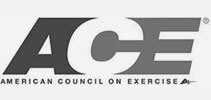
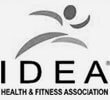
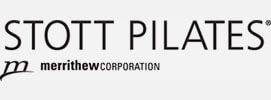
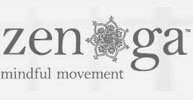

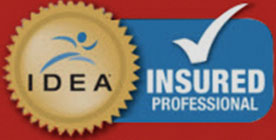 © Beyond Fit, LLC. All Rights Reserved.
© Beyond Fit, LLC. All Rights Reserved.